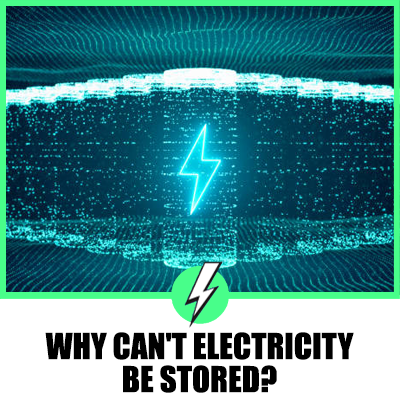Certified Electrician Vs. Licensed Electrician
The terms certified and licensed are used interchangeably. And it not the case with a layman; even academics and the scholarly commit this relatively common mistake. Electricians are not exempt from it.
And indeed, certification and licensure can be hard to differentiate at the surface. However, there are differences between a certified electrician and a licensed one. This post breaks down the differences between the two electricians. You might wonder why understanding the difference between certification and licensure matters when you’ll be fixing and installing wires.

But a good knowledge of what your chosen profession entails can be indispensable. This is especially great if you plan to branch out as a self-employed electrician in the future.
Let’s start with the definitions.
Contents
Certified electrician
By definition, certification refers to a document that attests you have the necessary qualifications for the job. Obtaining certification for an electrician job is possible through a short-term course or long-term program.
Therefore, a certified electrician is a highly-skilled tradesman who specializes in the field. Certified electricians usually have a combination of training, apprenticeship, and experience under their belt.
A certified electrician may be a domestic installer, a qualified electrician, or an approved electrician. Electricians with domestic installer certification are usually only qualified for electrical works in residential homes, bungalows, and flats.
On the other hand, qualified and approved electricians can work on residential and commercial works, including industrial and agricultural sectors.
Why certification is essential for electricians
Getting a certificate as an electrician not only confirms that you are qualified for the job. This can help you get a coveted position with the right company or agency.
Additionally, it proves your credentials to the clients, which can boost your reputation and business. As a self-employed electrician, certification can mean a good return on investment. Getting the electrician certificate can also come in handy while joining associations.
Licensed electrician
A license is a legal requirement that you need to establish to work as an electrician. Since a license is required by the law to practice your profession, not having a license can warrant fines and even jail time.
So a licensed electrician is a qualified tradesman who is legally permitted to work in the industry. Licensed electricians can employ a certified electrician but not the other way round; make sense? These categories of electricians usually run their own contracting business or agencies. Additionally, a licensed electrician has a mandatory certificate, but a certified electrician need not have a license.
For contracting electricians in Great Britain, licensing is not mandatory. However, signing up to join relevant associations can add significant weight to your credentials. For those in England and Wales, the right association are the ECA, NECEIC, and ELECSA.
How to get a certification and license for electricians
For aspiring electricians in the UK, there are three ways to become a certified electrician.
Enrol in a domestic electrical installer course
The domestic installer course is usually the first option and is also the easiest way to become a certified electrician. The duration of the course is about a month.
This introductory course covers the health and safety skills for working as a residential electrician. You will also get a good knowledge of electrical works such as installing light fixtures and rewiring in a residential property.
Although the domestic installer course is a great way to kick start your journey as an electrician, it does not make you a master electrician.
After you complete this introductory electrician course, you will need to register with either the ELECSA or NICEIC for a work license.
Take a course for a diploma or technical certificate.
The next best thing is to enrol for Level 2 & 3 Diploma or a technical certificate. This diploma course ran a little over three months and was under the City & Guilds 2300 framework. However, the new trainees will study under the City & Guilds, Electrotechnical Craft (2365)
Under this certification, you will train to become an electrician in residential, commercial, industrial, and agricultural environments. Since the industry recognizes this certificate, you will be qualified to work under a licensed electrical contractor. You can also become a self-employed electrician.
Apply for an apprenticeship electrician program
By far, the best way to become a certified electrician is by joining an apprenticeship program. This involves studying NVQ Level 3 in Electrotechnical Services as well as working alongside a qualified electrician. Apprentice electricians typically require a total of three to four years to complete the program. However, they also make a decent earning during this time.
As an apprentice, aspiring electricians learn everything from safety and health to wiring and installation. Inspection testing and electrical principles are also part of the curriculum. Also, students learn the current BS7671 IEE wiring requirements.
After a successful stint as an apprentice electrician, you will be certified as a full-time electrician.
Additionally, if you want to be among the crème de la crème of electricians in the UK, you can enrol in the AM2 exam. The AM2 or Achievement Measurement 2 Exam is readily available in one of the local centres where you will be assessed at your place of work. A UKAS accredited certification body using the Electrotechnical Assessment Specification carries out the onsite assessment. If you complete this training stage and evaluation, you will be known as Approved Electrician, a title you earn from the Joint Industry Board.
A certification for electricians in the UK comes from City & Guilds or EAL. Besides, online certificates are also available at SparkSafe LTP for electricians in the UK.
Wrapping up
Figuring out the difference between a certified electrician and a licensed electrician can be tricky at first. In general, certified electricians typically work with agencies and companies, while a licensed electrician is usually self-employed.
Regardless of the definition, both categories of electricians are qualified. The difference mainly lies in the legal aspect that comes into play while choosing to be a self-employed electrician or to set up your contracting business.





